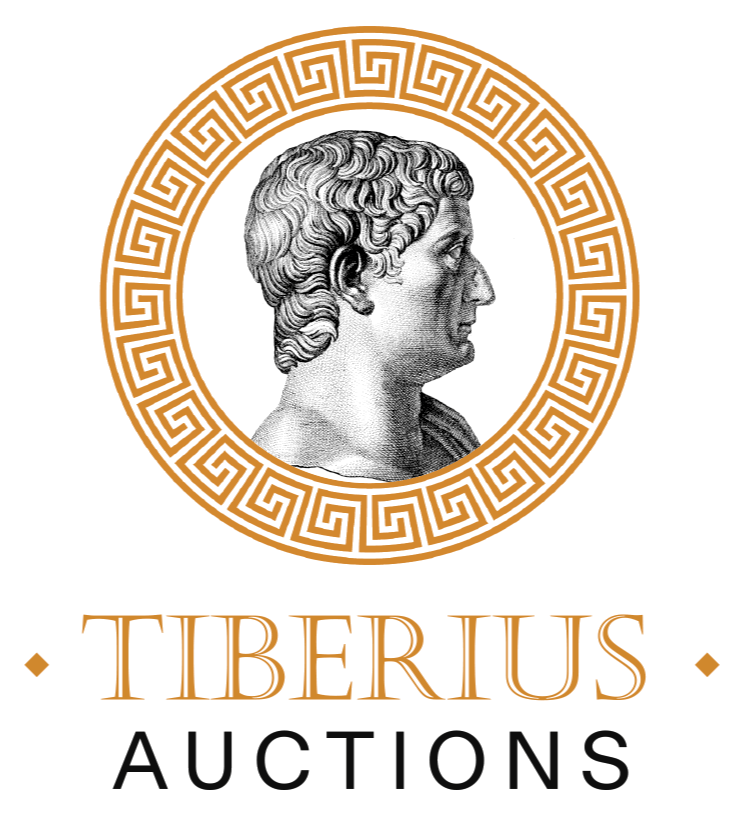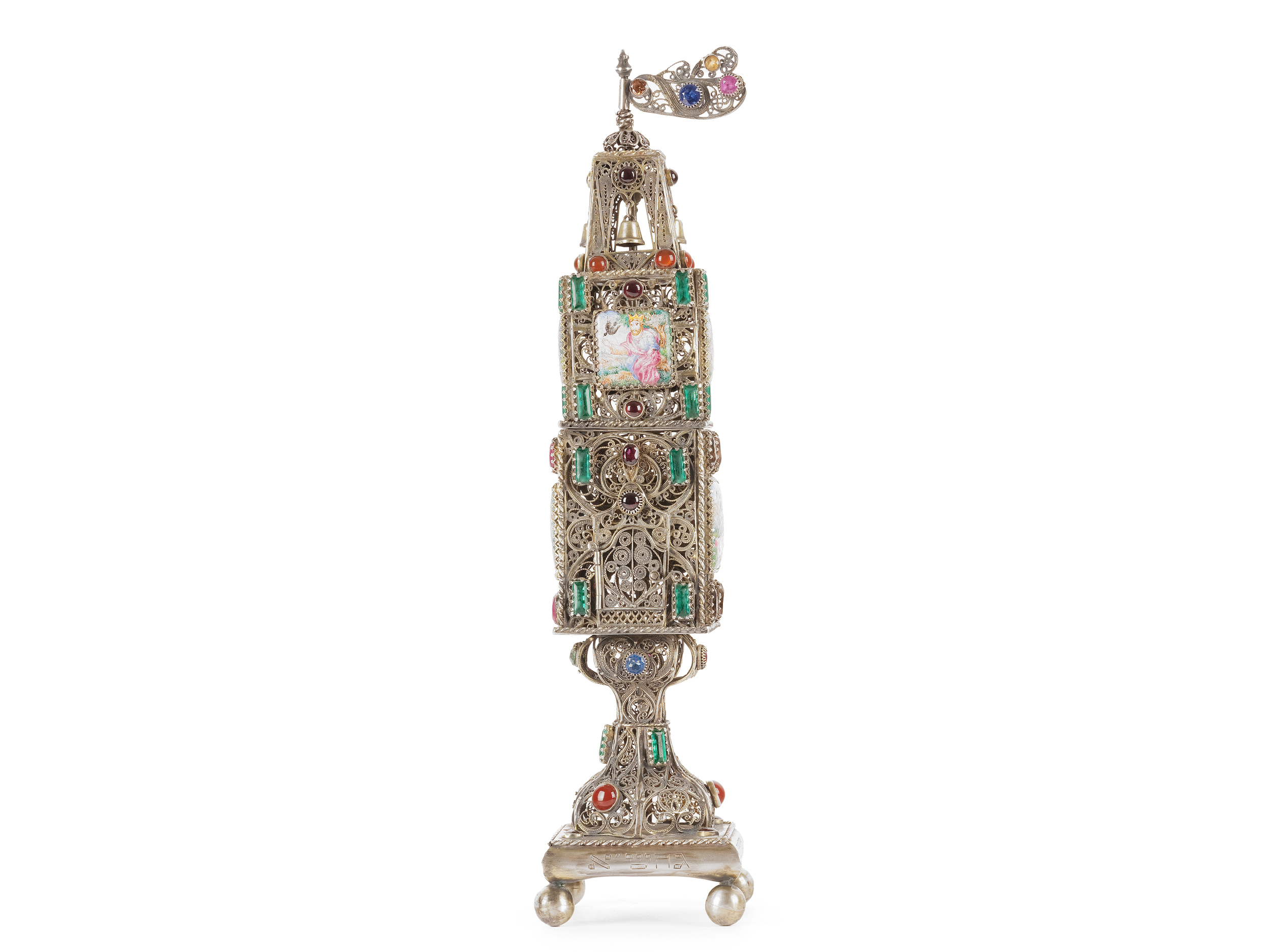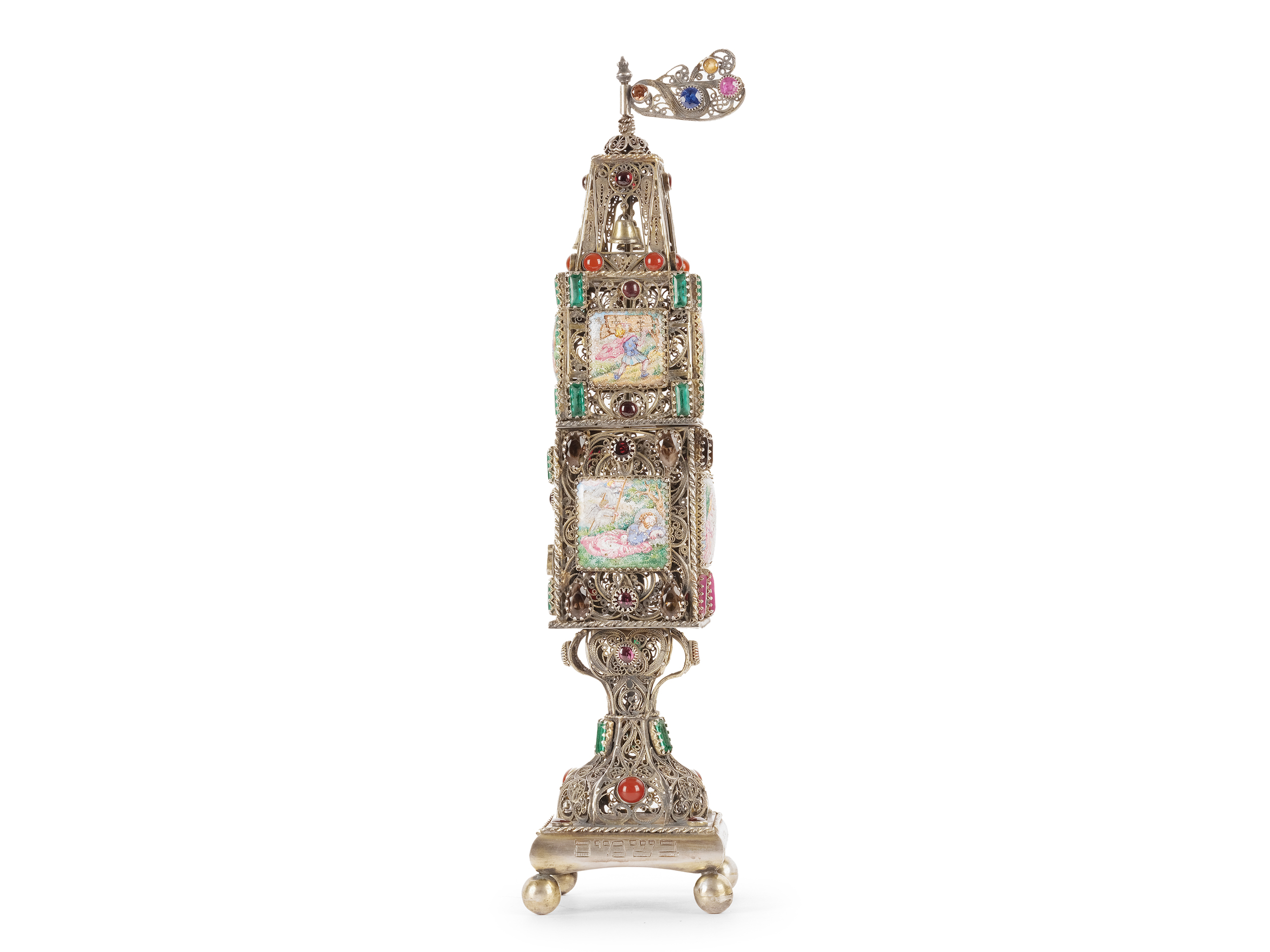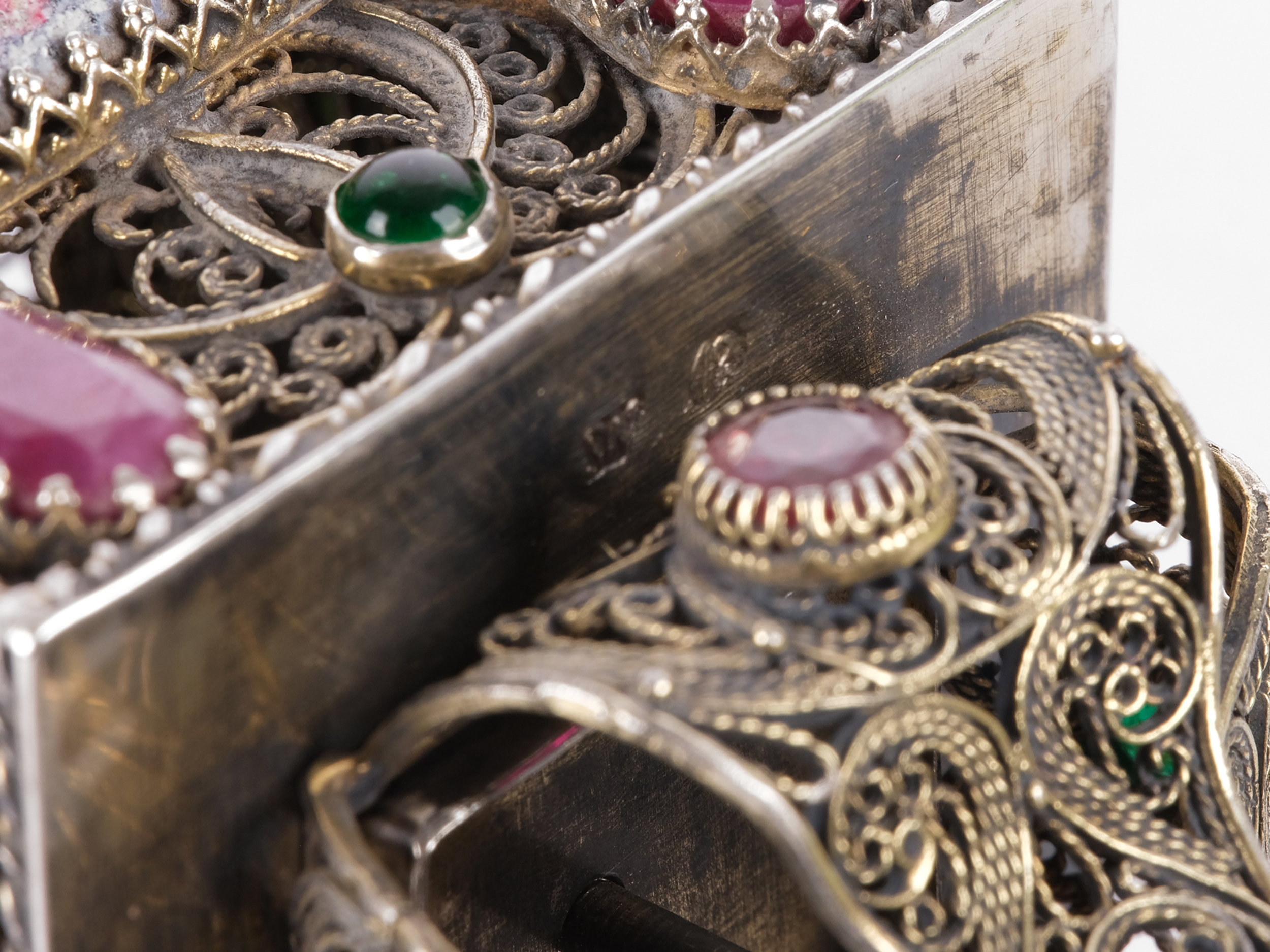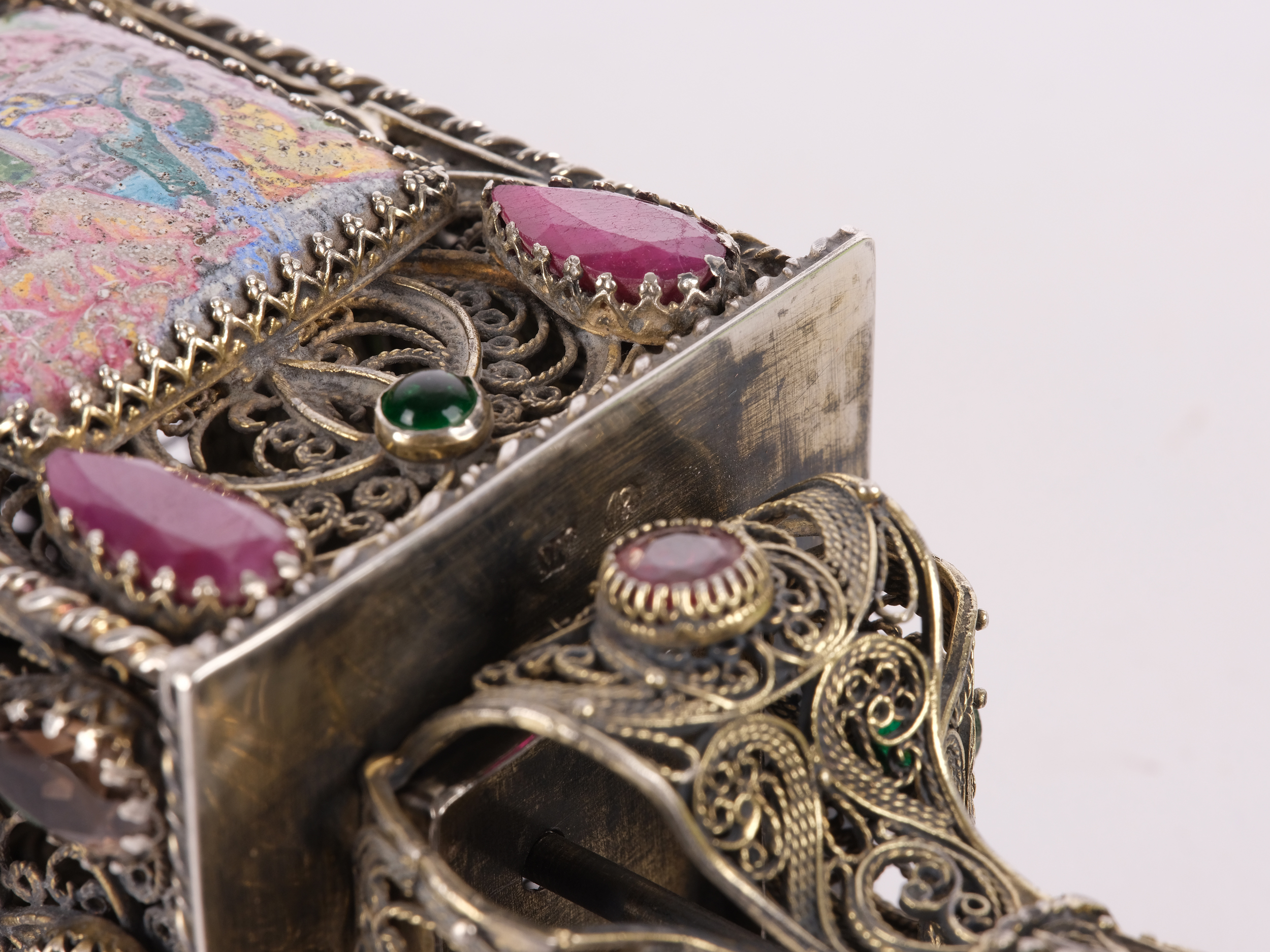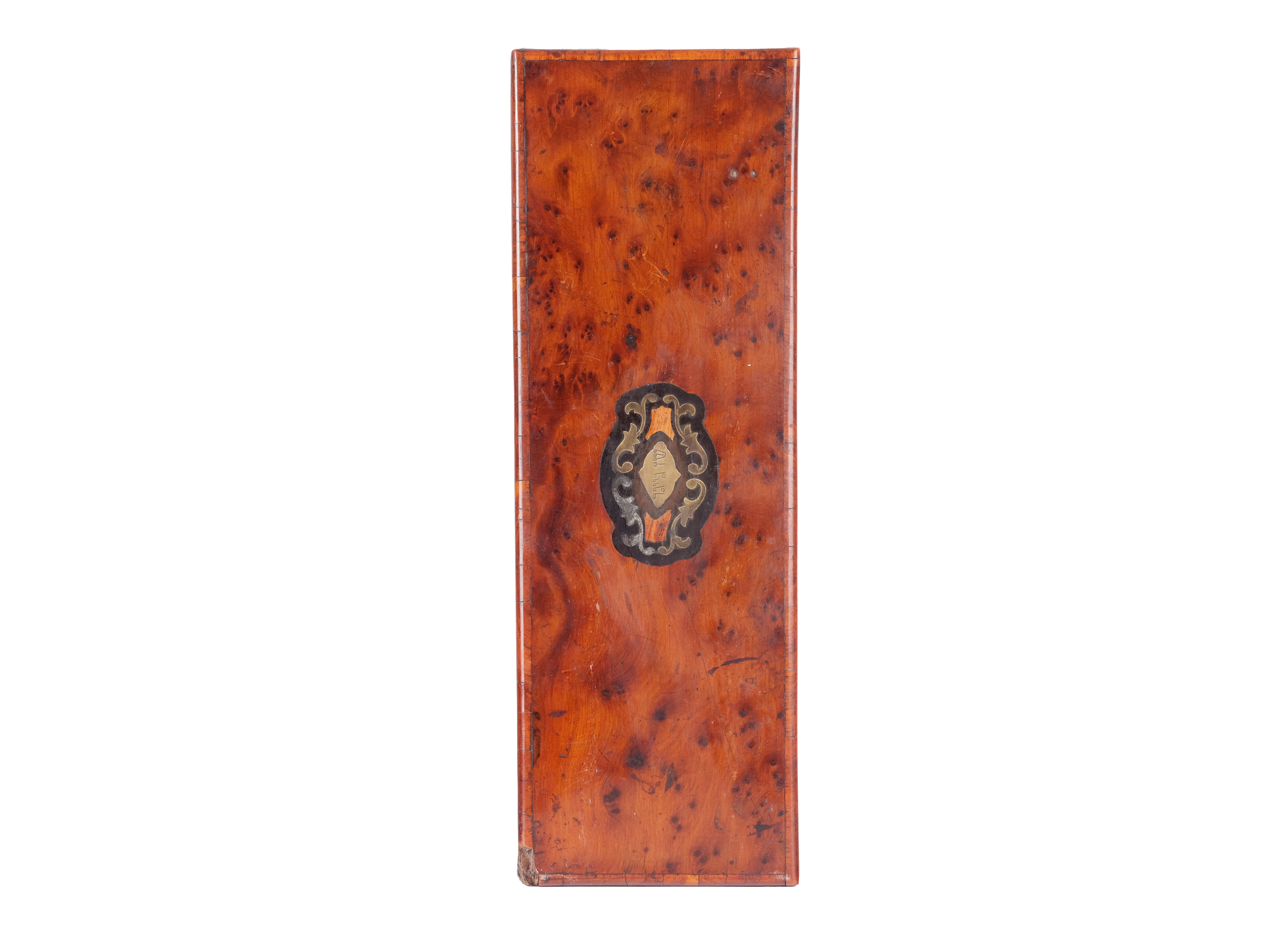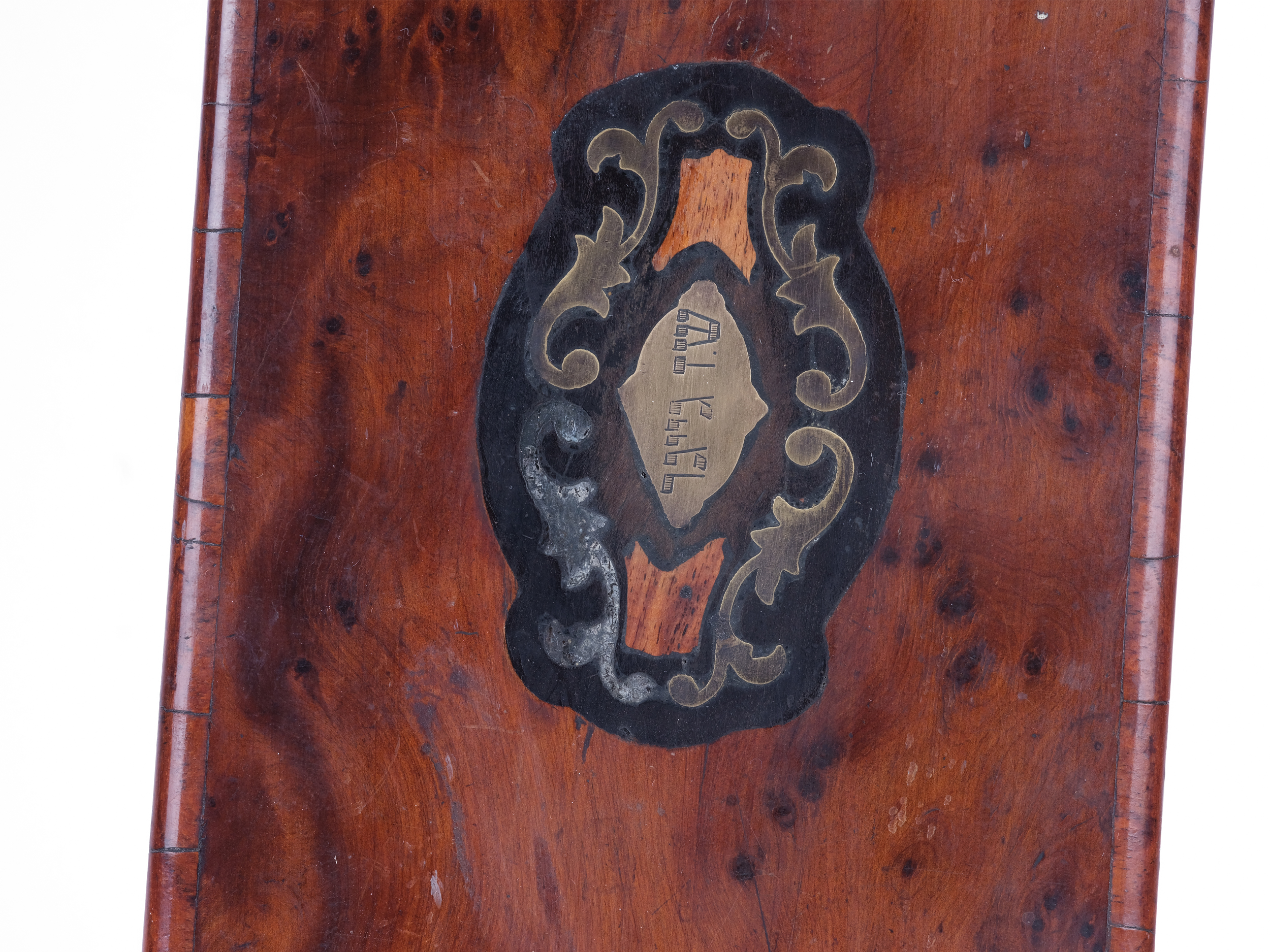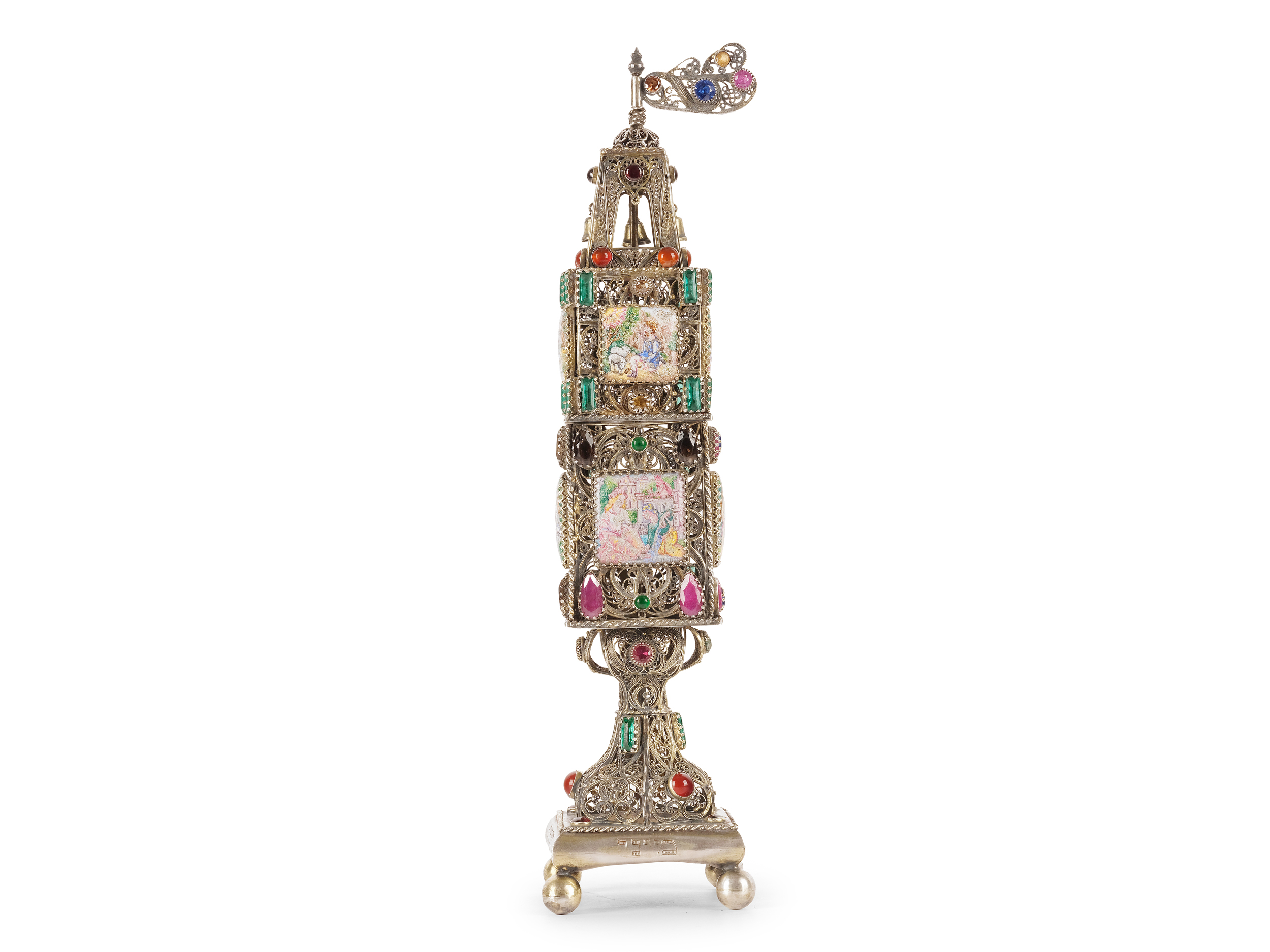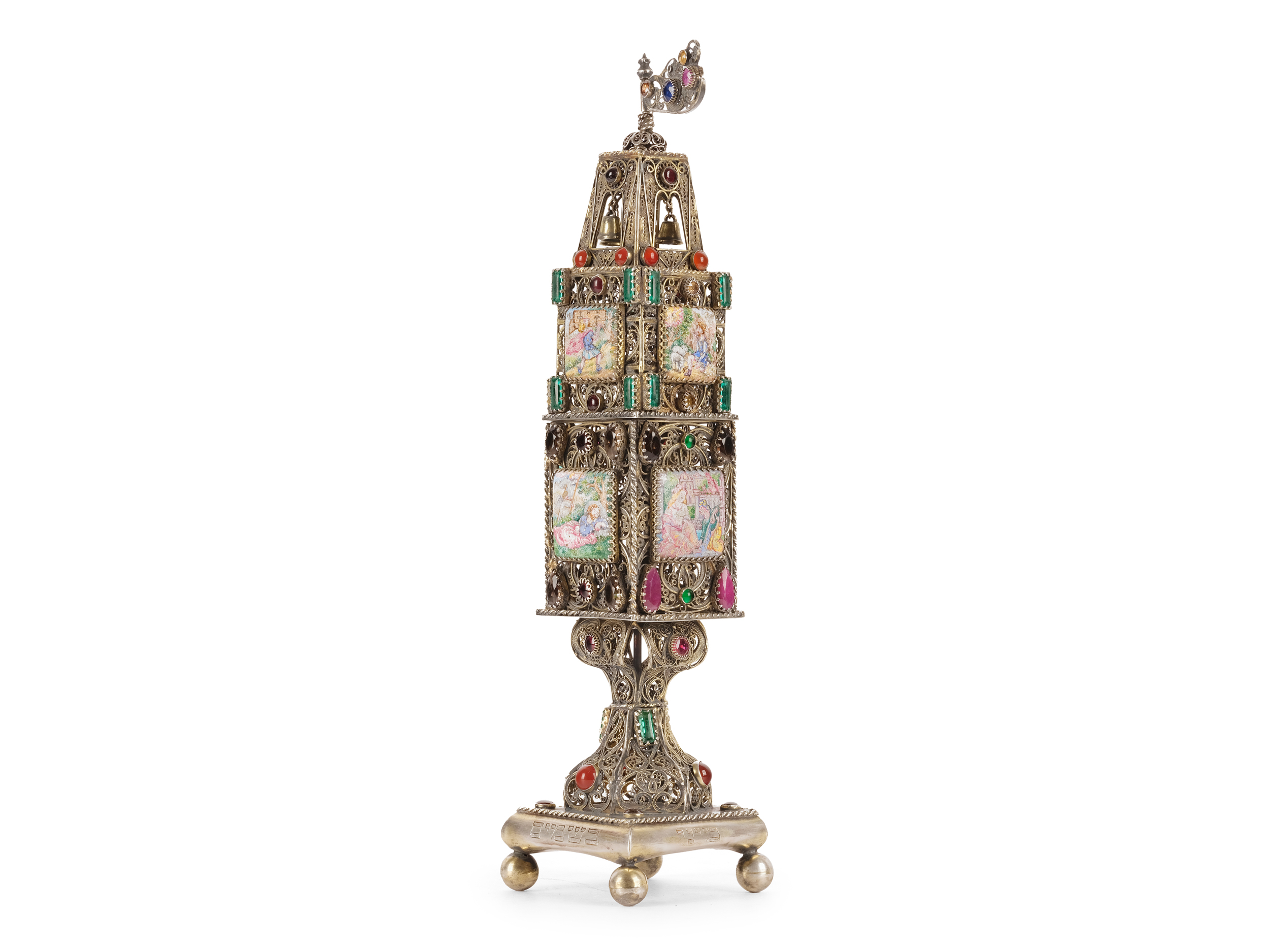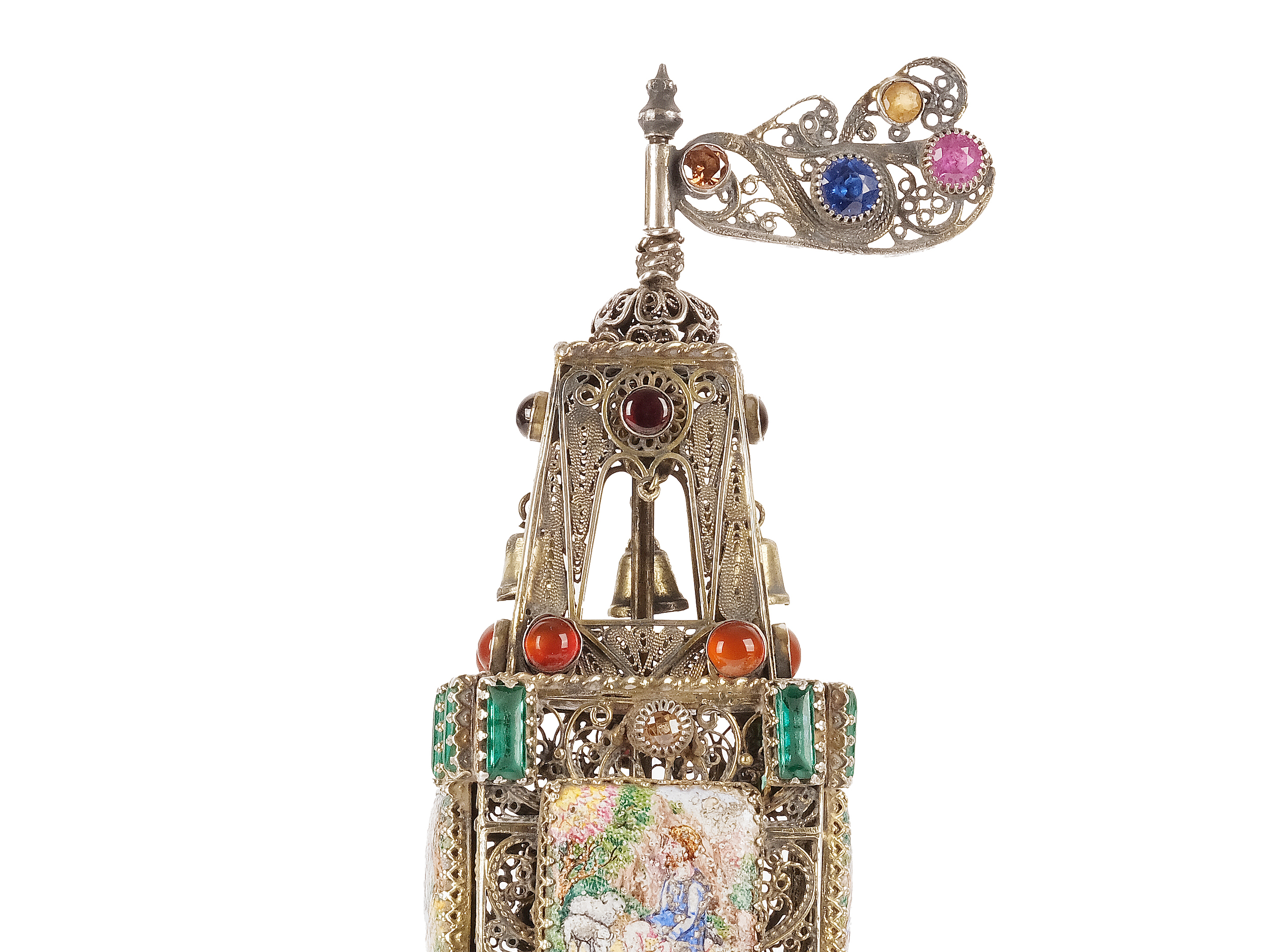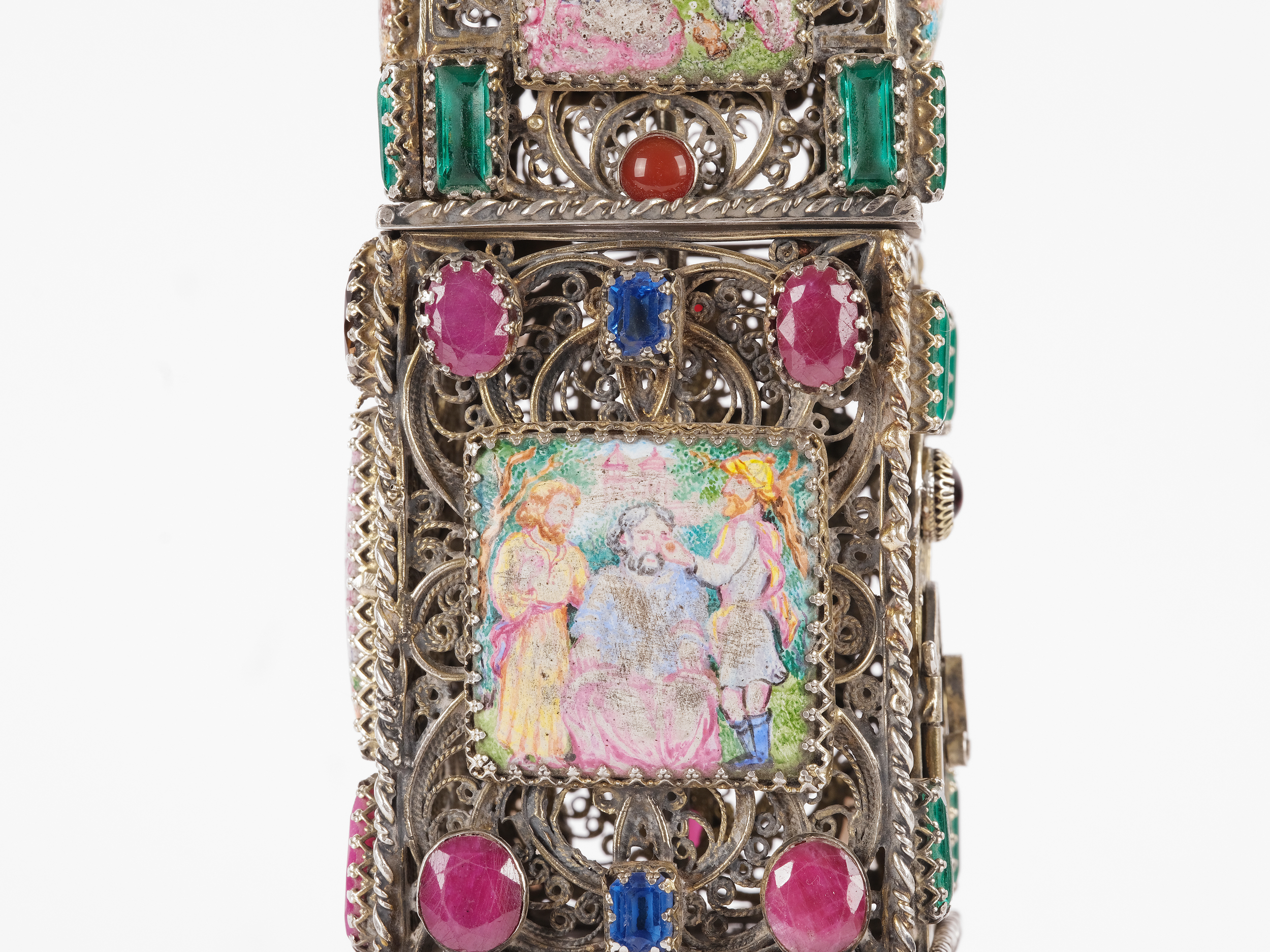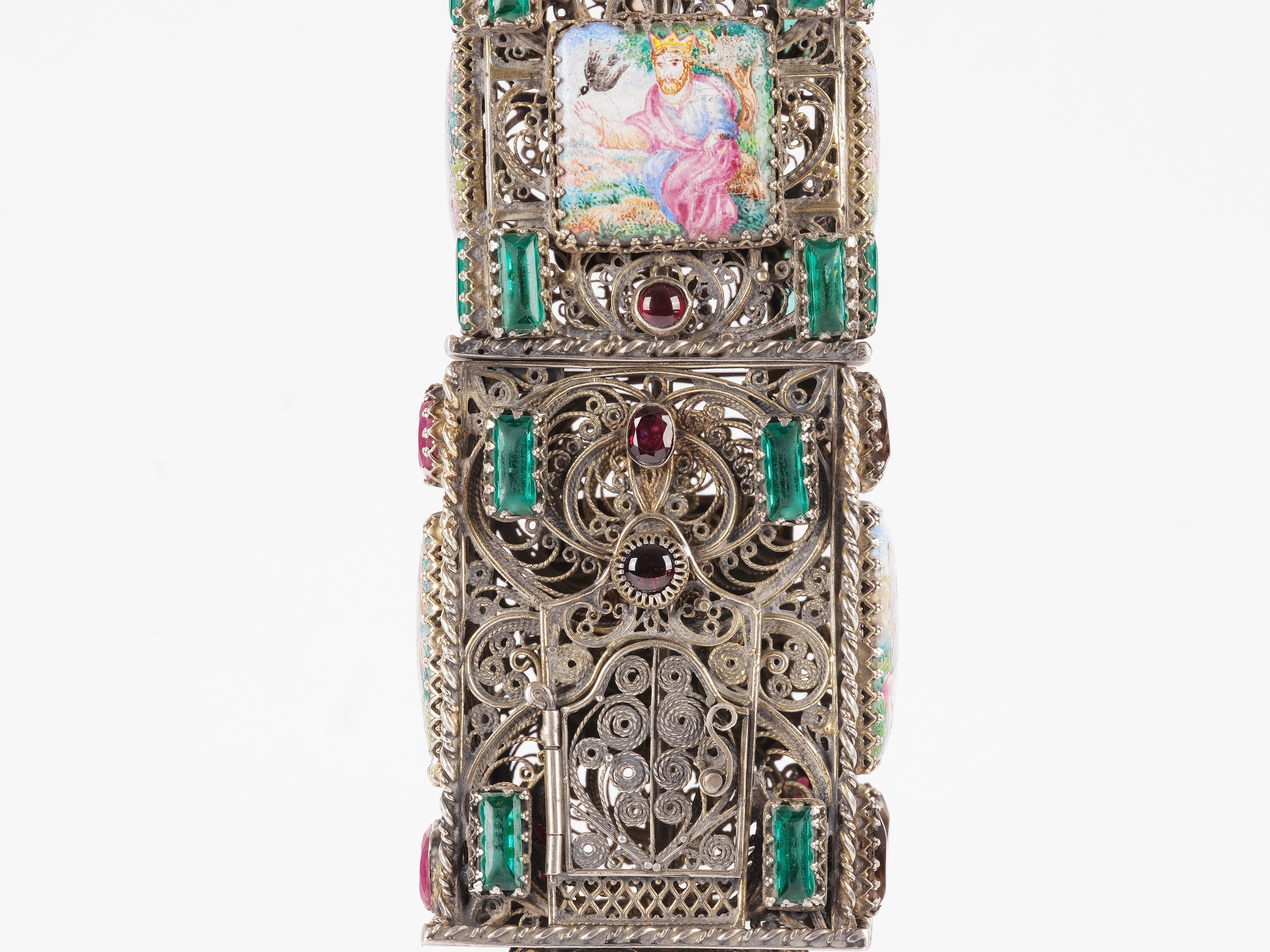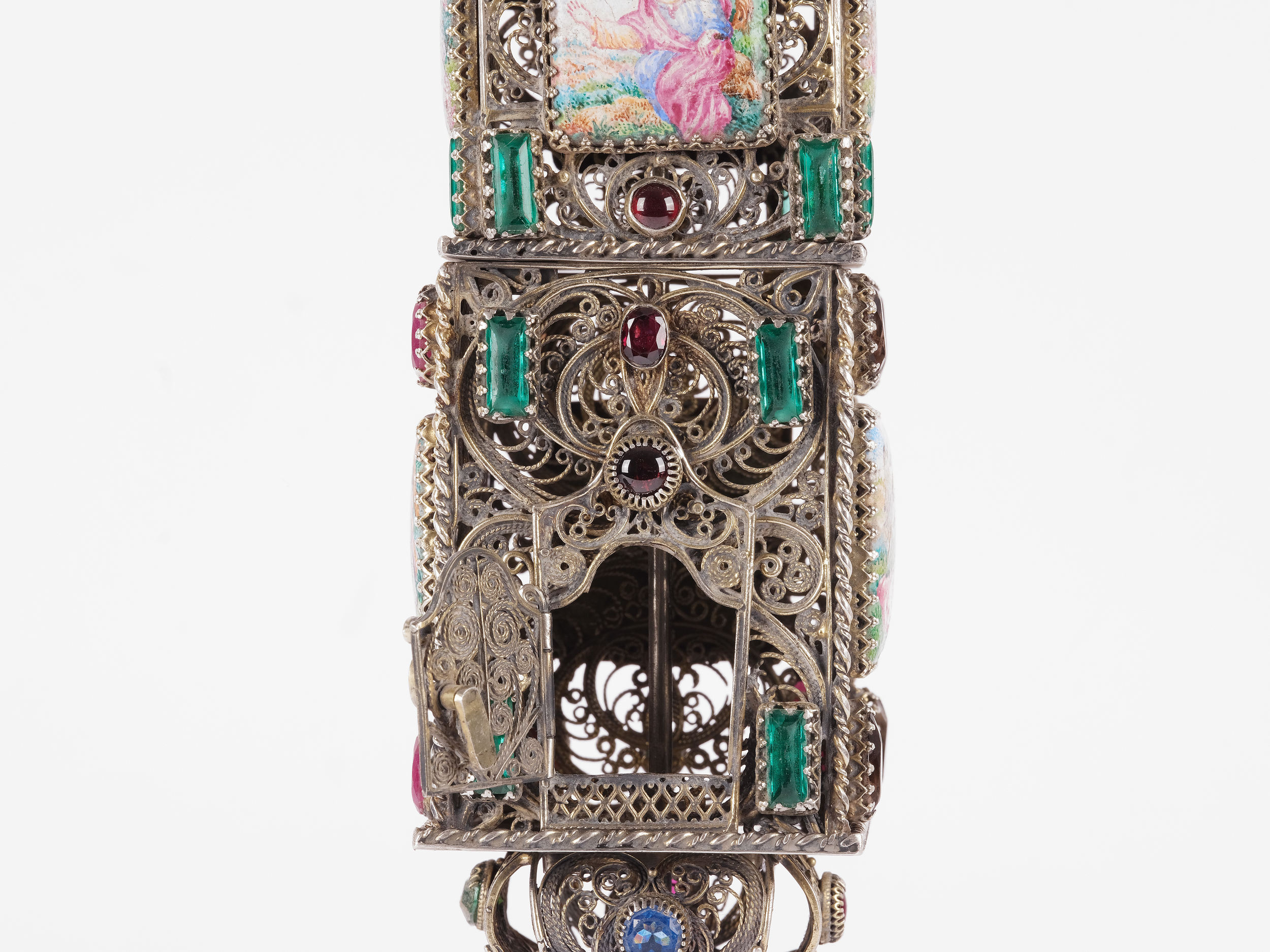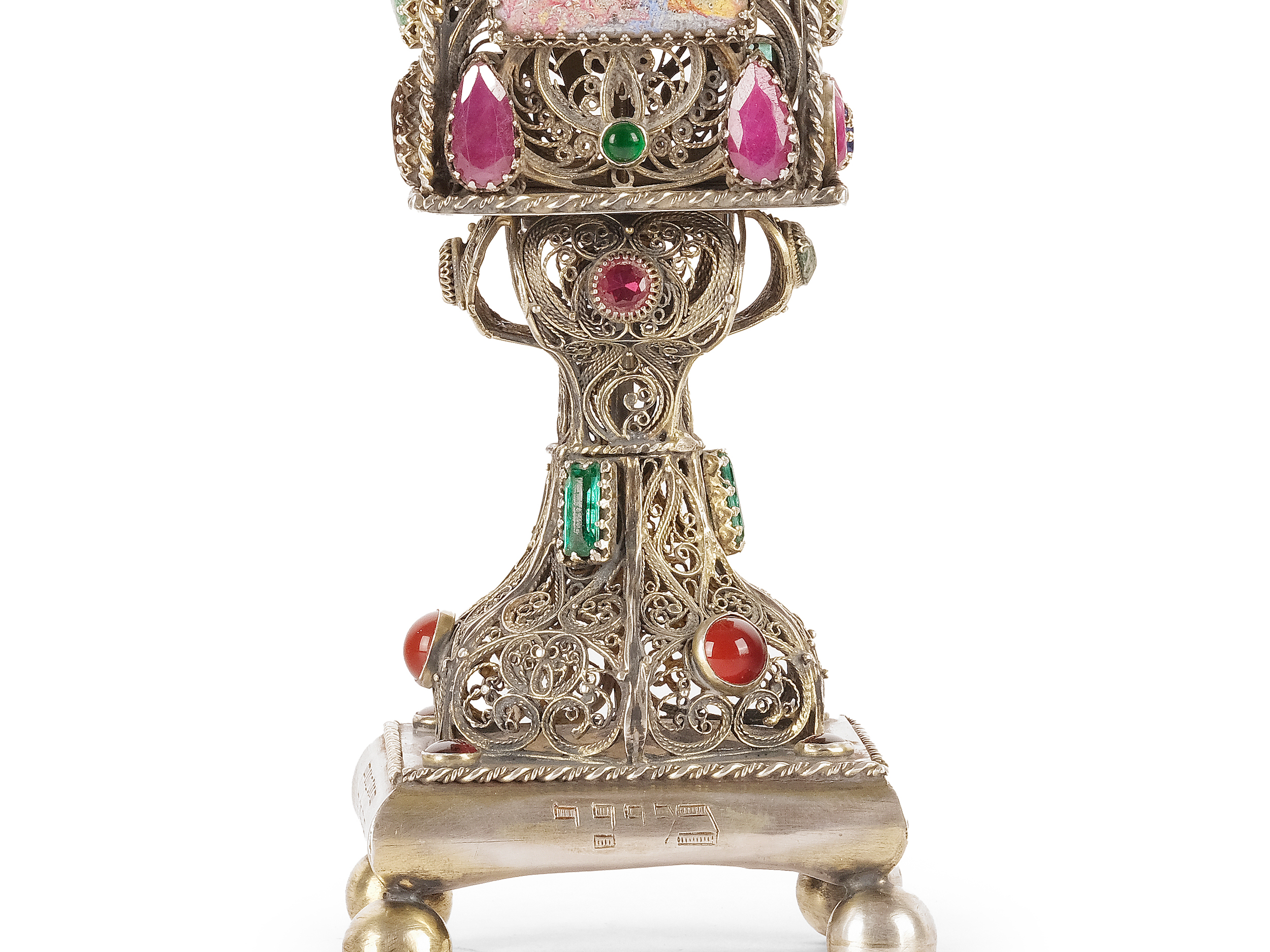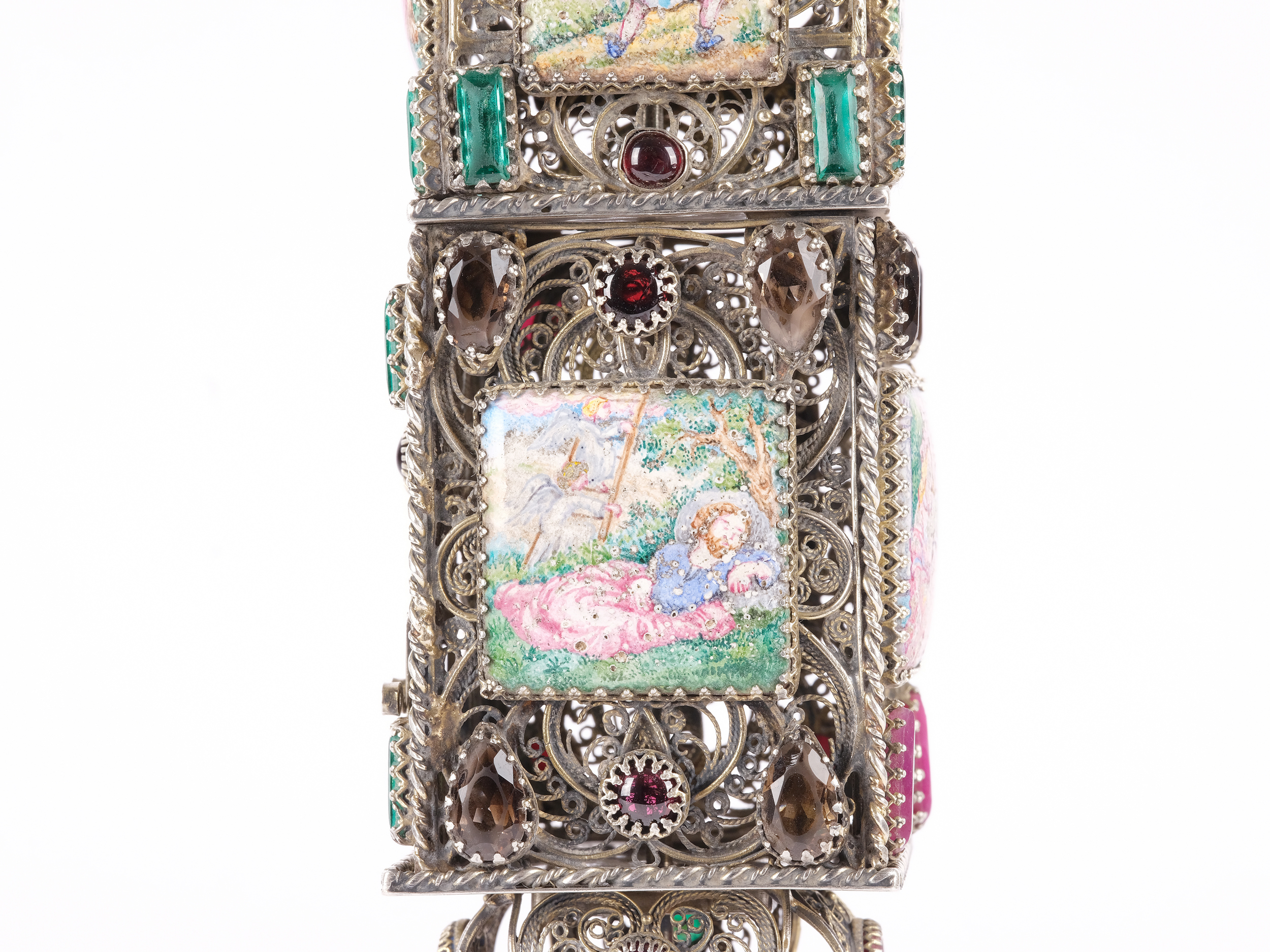Besamim tower
TIBERIUS – NACHVERKAUF
Besamim tower
Aftersale price:
€ 25.400
- USD: 29.921 $
- GBP: 22.052 £
Besamim tower
Around 1900
silver
Enameled plaques
Colored gemstones/gemstones?
Height 31 cm, 7.5 x 7.5 cm
Weight 563.7 g
This richly decorated Besamim tower, made around 1900, is in the direct tradition of the famous Schwäbisch Gmünd spice towers of the 18th century, of which only eight surviving examples are known worldwide – in Würzburg, Jerusalem, New York, London, Copenhagen, Paris, Tel Aviv and Frankfurt am Main (JMF1987-0056). The towers of the time were elaborately crafted in silver filigree and decorated with enameled fields – a design that is reflected in almost every detail in this piece.
The tower is intended for the Jewish Hawdala ritual, in which fragrant herbs (besamim) are smelled at the end of the Sabbath to bid a dignified farewell to the holy day. The elaborately crafted tower shape has deep symbolic meaning: it stands for the heavenly city of Jerusalem or the temple as a place of hope, redemption and divine closeness.
Particularly noteworthy are the enameled plaques on two floors depicting biblical scenes – including Jacob’s ladder to heaven, Hagar and Ishmael, and Samson carrying the gates of Gaza. The images are based on the famous “Icones Biblicae” by Matthäus Merian, which were published in Frankfurt between 1625 and 1627 and influenced Christian and Jewish imagery for centuries.
The combination of silver filigree, enamel and colored stones or glass inserts, as can also be seen in this piece, was common in liturgical art, especially for Christian objects such as reliquaries or crucifixes. The fact that a Jewish ritual object around 1900 deliberately drew on these forms and techniques demonstrates cultural openness and the pursuit of outstanding craftsmanship and aesthetic quality.
This Besamim tower is a rare example of the artisanal and cultural heritage of Jewish communities in Europe around 1900. In its form, imagery and execution, it is a direct continuation of the legendary pieces of the 18th century and bears witness to a living tradition that was inspired and carried on across time and denominations.
Literature: Heuberger, Georg (ed.), Die Pracht der Gebote – Die Judaica-Sammlung des Jüdischen Museums Frankfurt am Main, Cologne: Wienand, 2006.
